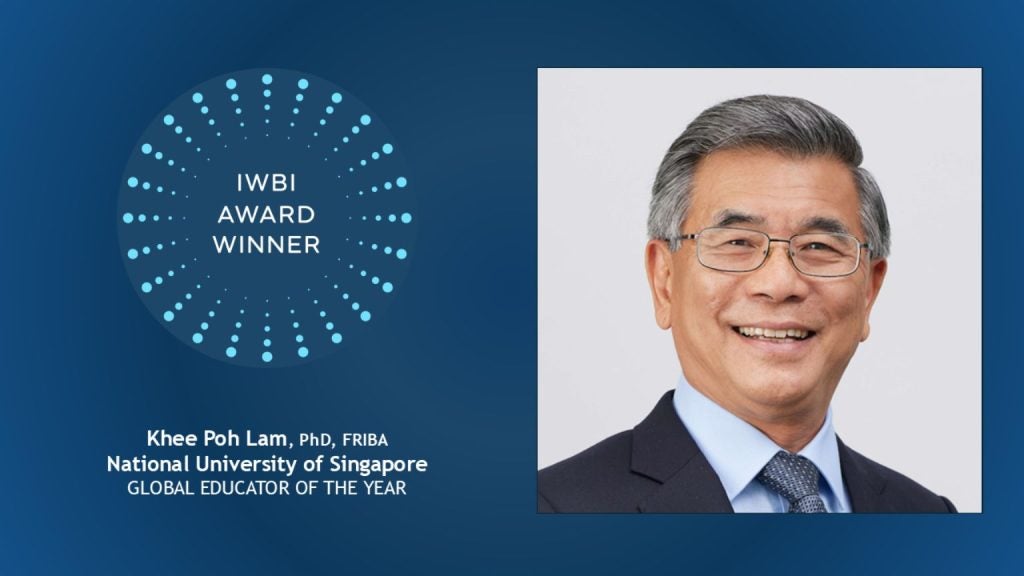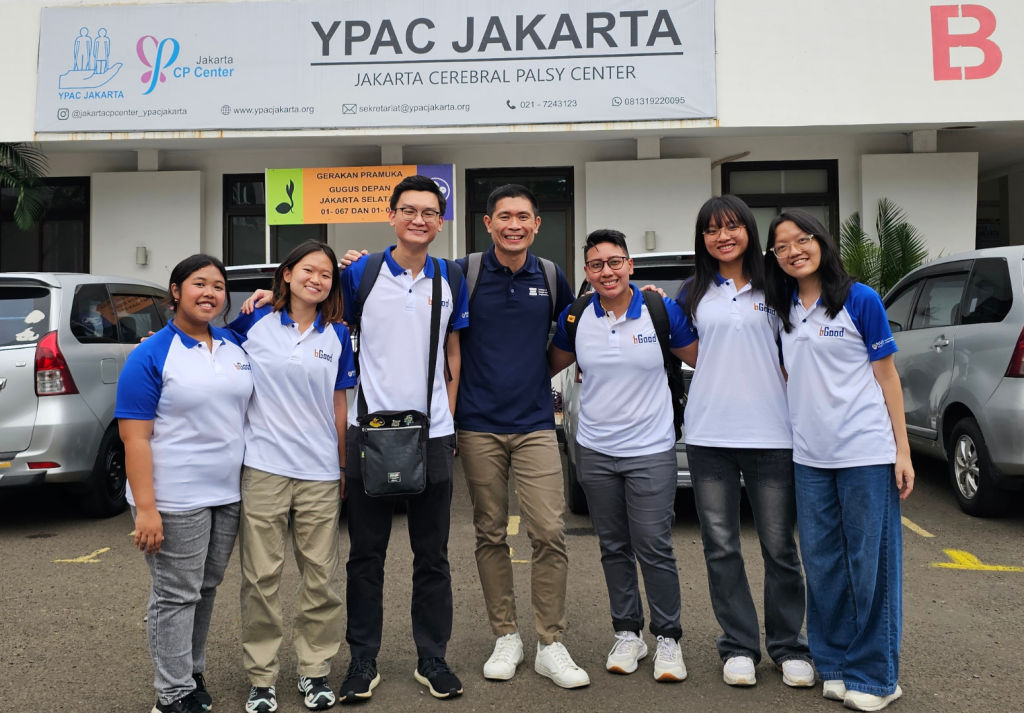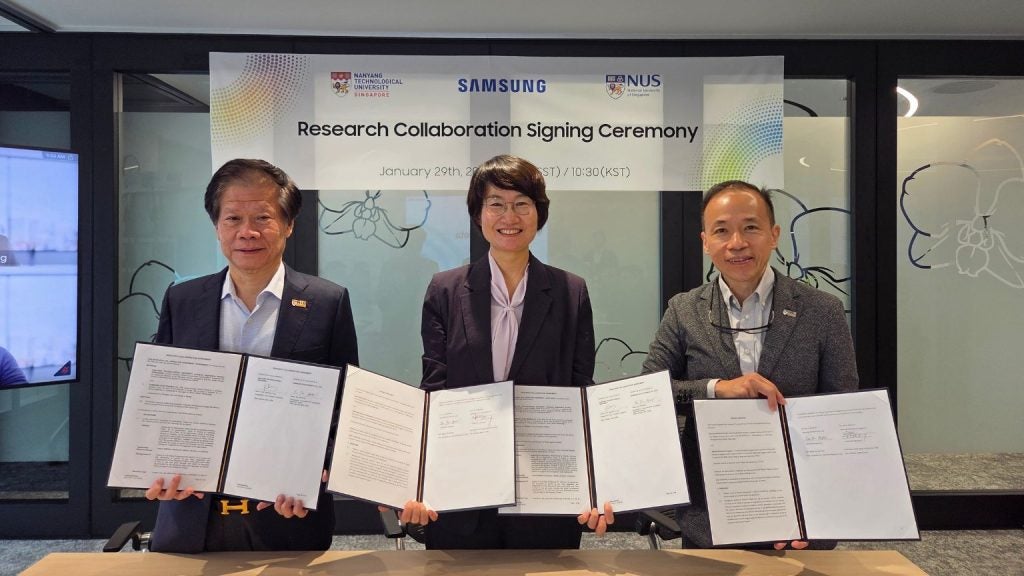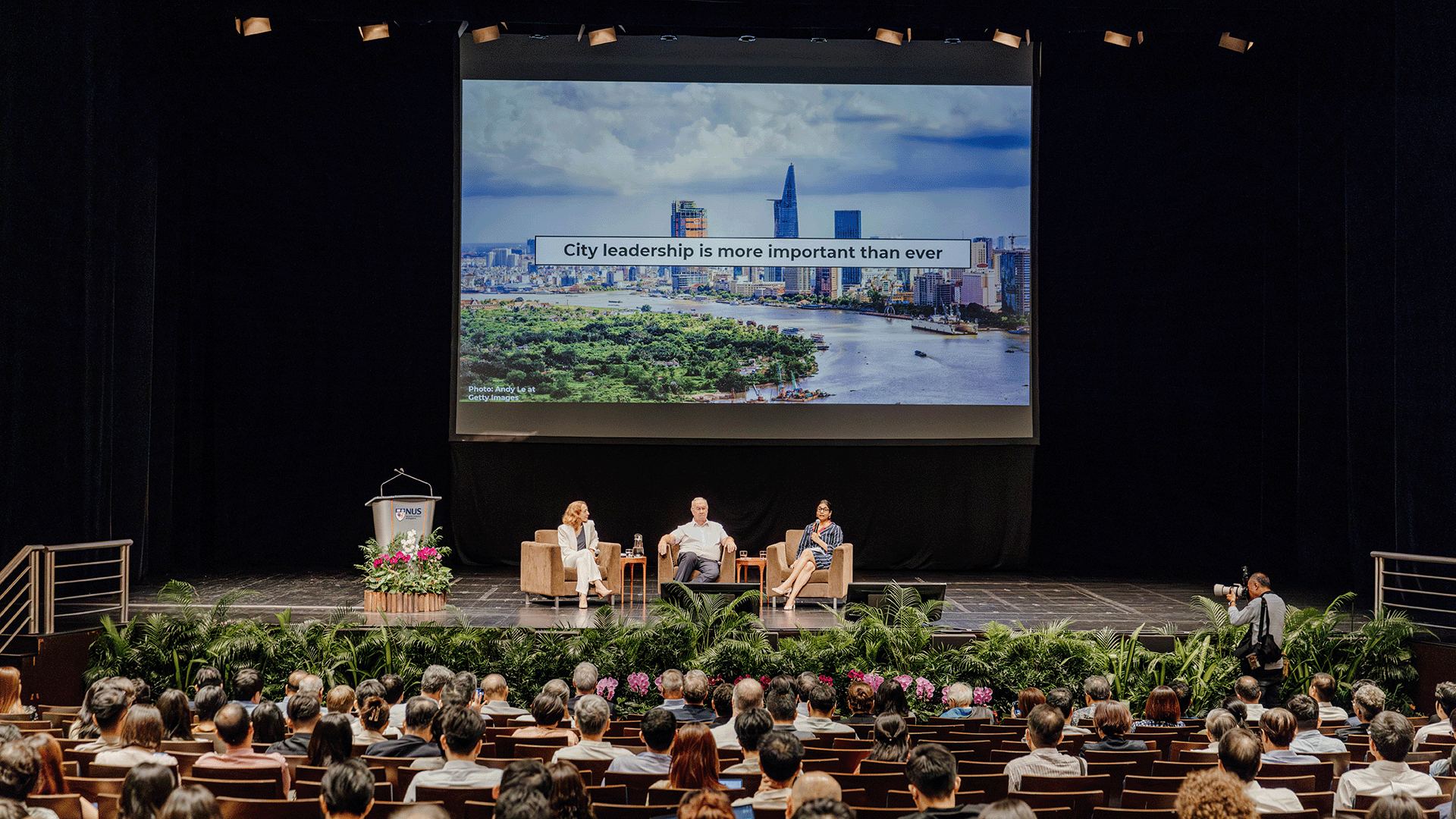
Amid increasing global uncertainty, how can cities remain or become more liveable in the face of challenges such as climate change, emerging diseases and rapid ageing? Under the theme of “liveable cities in uncertain times,” the second annual NUS Cities Symposium, held on 18 September, brought together renowned global experts, policymakers, industry leaders, staff, students and others to discuss these evolving urban challenges and strategies to tackle them.
Opening the event, Professor Khoo Teng Chye, Director of the NUS Cities research centre, said the symposium aimed to explore the critical question of how liveable cities can be made more resilient. “Our cities should not just be liveable, but sustainable to endure for generations to come, and resilient to survive crises like COVID-19 and other social, environmental, and economic upheavals,” he said.
The Guest of Honour for the symposium was Mr Desmond Lee, Minister for National Development and Minister-in-Charge of Social Services Integration. In his address at the start of the day-long event, he outlined Singapore's strategies for maintaining liveability and sustainability, highlighting Singapore’s proactive but also flexible approach to urban planning.
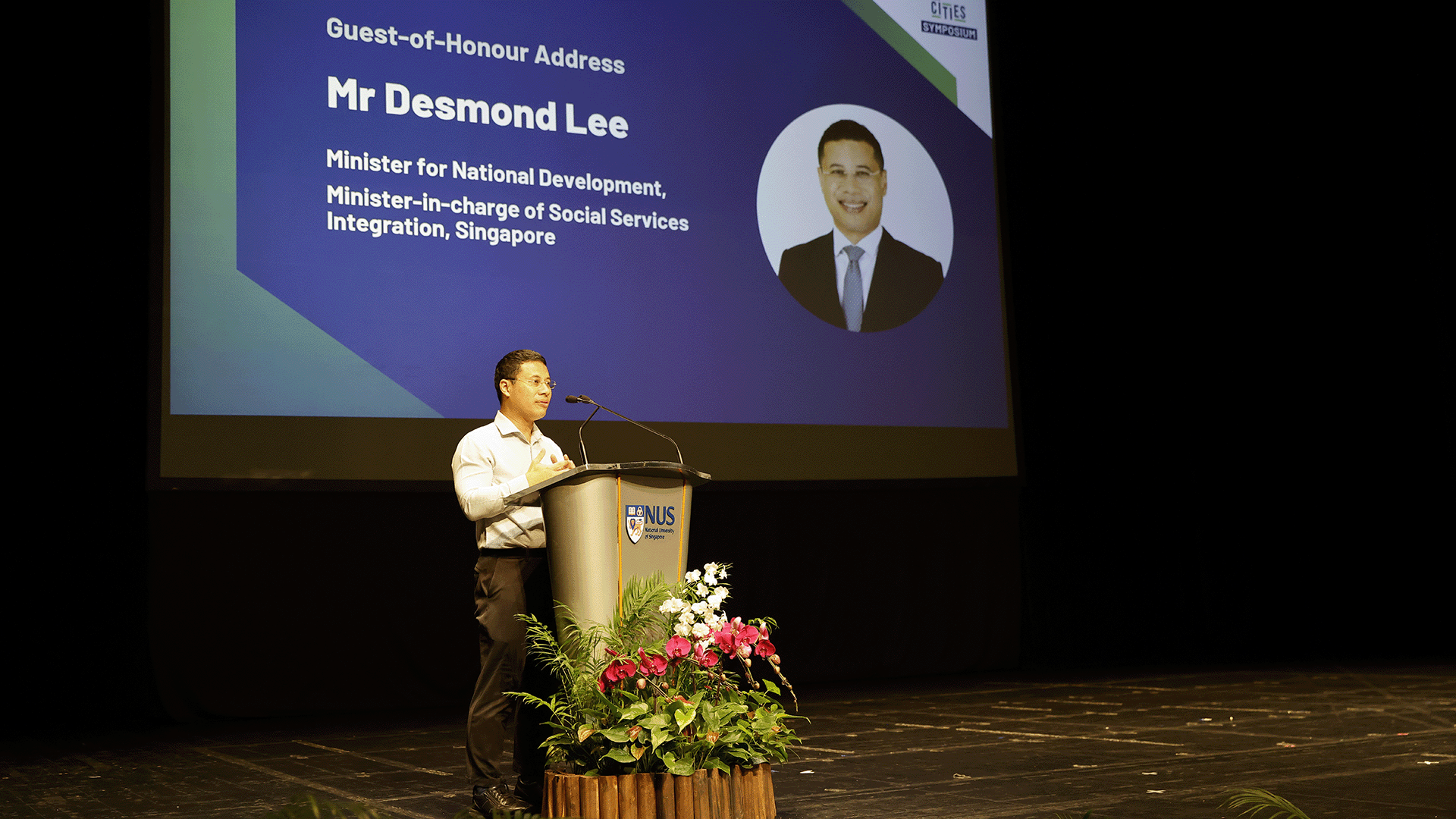
“As our circumstances change, so must our plans, including our land use plans,” Mr Lee said. “From our long-term plan review engagements and dialogues, we understand that businesses now prioritise flexibility to reconfigure their physical space needs, so that they can quickly adapt their business models, adopt new technologies and integrate with partners along their value chain.”
During his speech, the minister announced new government plans to expand the use of district cooling systems in a bid to cut carbon emissions through a new programme of incentives for building owners. He added that public feedback would also be sought on plans to expand a programme that encourages greenery in urban areas and buildings.
“We must be unafraid to take bold steps to safeguard the best future for generations to come,” Mr Lee told the audience. “This means thinking about not just our needs, but thinking about future generations, planning for them, keeping resources, and stewarding resources, so that we hand to them a better and more robust Singapore than the one that we inherited.”
Mr Lee also stressed the critical role of collaboration, noting that urban planning is not solely the responsibility of the government. “Planning a city is not something that our planners and policymakers can do alone,” he said. “All of you are partners in this journey, creating our shared future together.”
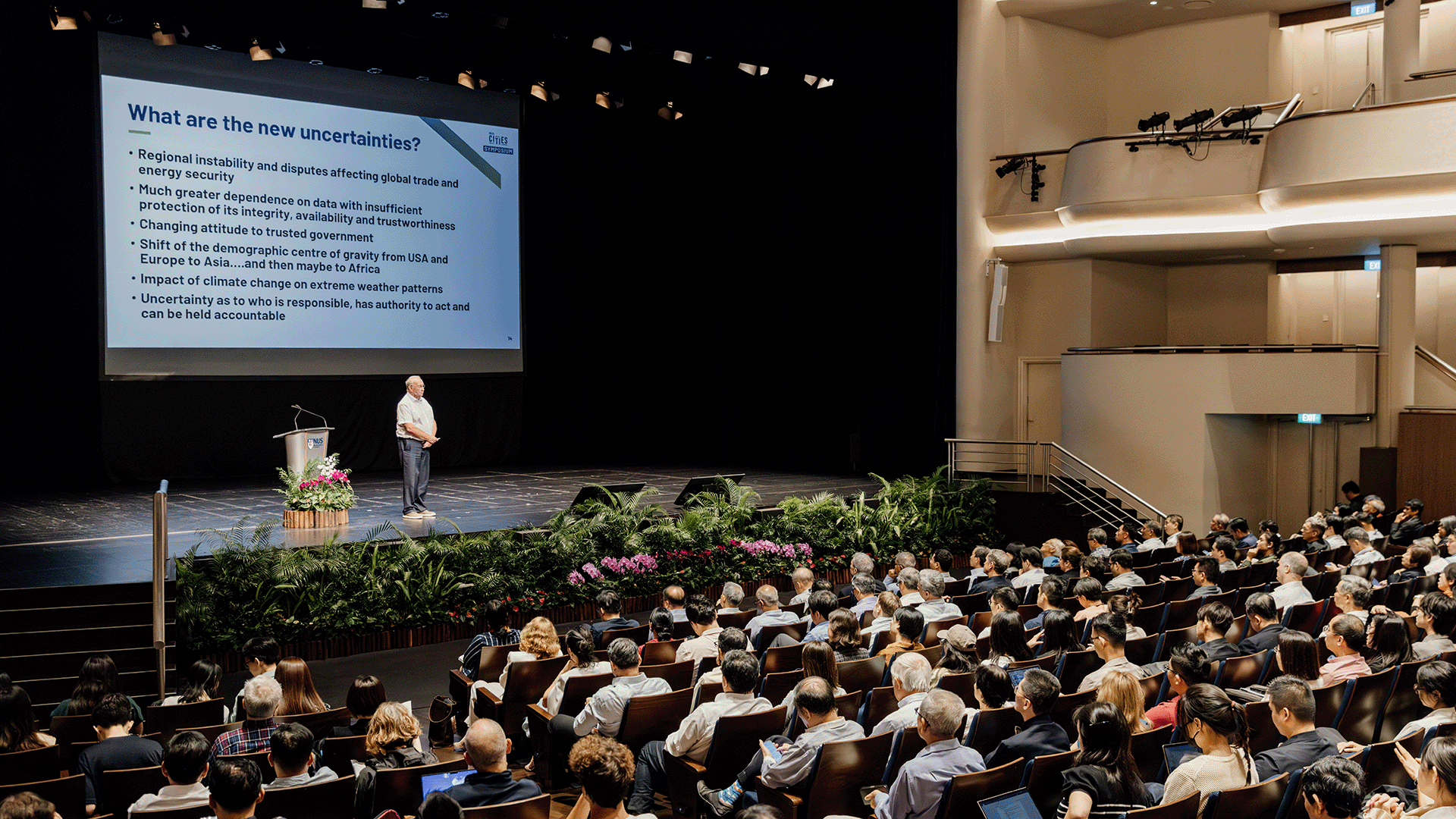
Following the minister’s address, Professor Brian Collins, an expert in infrastructure systems, engineering and public policy from University College London, addressed the critical challenges of urban resilience in the face of global uncertainties. He highlighted the increasing instability in global trade and energy security, which is profoundly affecting nations like Singapore. Prof Collins stressed the complexities of transitioning to new energy sources, pointing to the uncertainties surrounding supply chains, emerging technologies, and the availability of skilled labour.
In an increasingly interdependent, data-driven world, Prof Collins underscored the vital role of data integrity and protection. “If we are going to run our interdependent nations on data and the data exchange processes, we need to do a lot better with regards to global security and understanding where the weaknesses are, where the vulnerabilities are, and where the attacks might come from,” he said.
Prof Collins also emphasised the role of trusted governance in ensuring stability, both at national and city levels, while examining the shifting demographics driving migration and impacting urban sustainability. Addressing the threat posed by climate change, he discussed the increasing frequency of extreme weather events and their impact on infrastructure. He stressed the need for disaster risk reduction, learning from past experiences to mitigate future risks by taking a holistic approach to addressing resilience and ensuring future preparedness.
The symposium featured a series of plenary discussions on creating sustainable and liveable cities, with panellists discussing adaptive strategies such as creating inclusive spaces, health promotion and sustainable mobility.
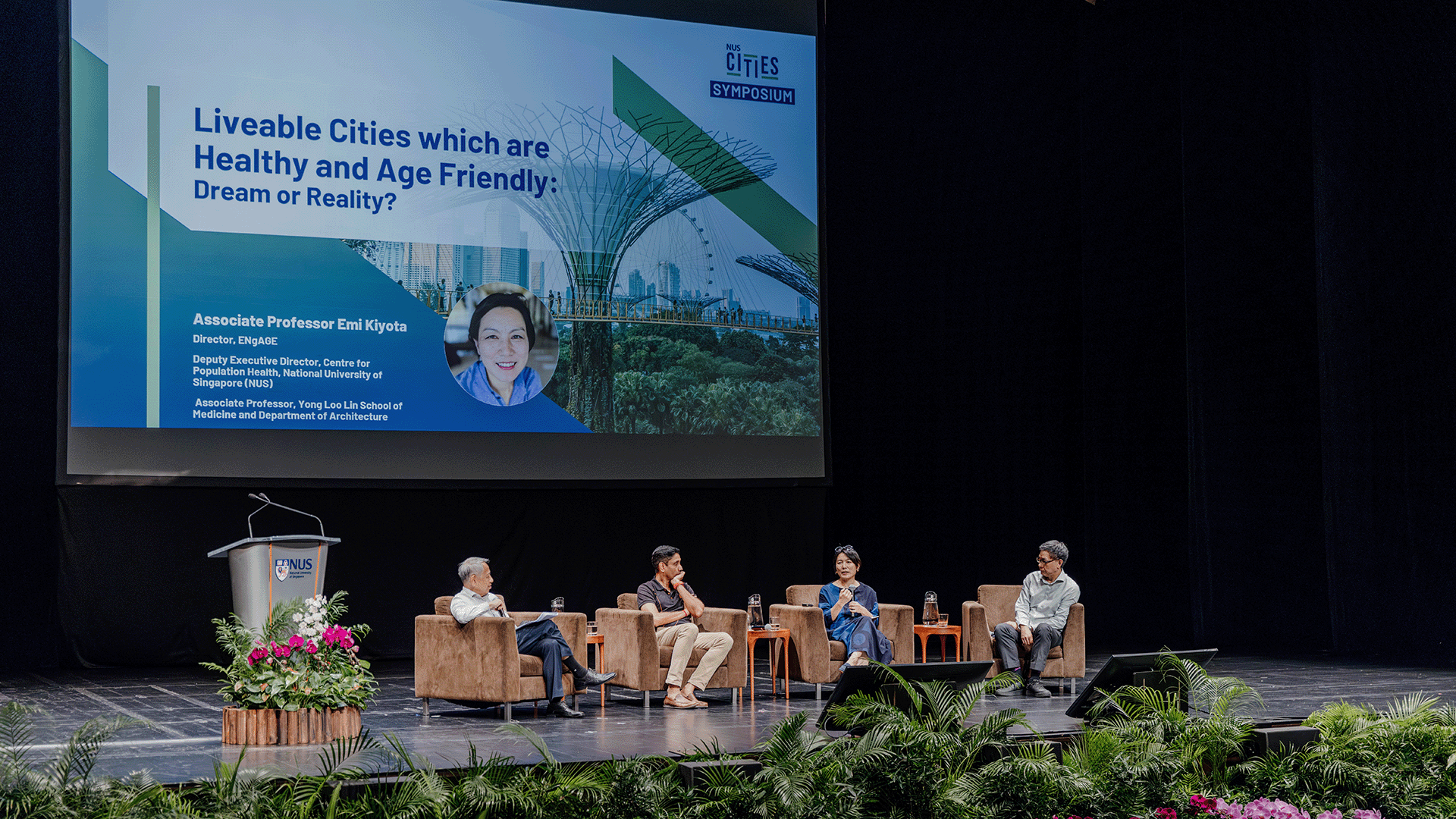
In the first plenary session, experts addressed strategies for enhancing urban resilience in uncertain times, with a focus on sustainability, equity, and community engagement.
A subsequent session on climate change adaptation highlighted the role of regenerative design in transforming cities into climate-resilient urban centres. A later plenary session also covered the creation of health-focused, age-friendly cities, with CDE’s Associate Professor Emi Kiyota, Director of the recently-launched Centre for Environment and Ageing Well (ENgAGE), among those on the panel.
Mr Lam Wee Shann, Deputy Chief Executive (Technology) and Chief Technology Officer at the Land Transport Authority, delivered a keynote address in which he discussed the Land Transport Master Plan, launched in 2019, and its relevance to current mobility challenges.
He then joined another plenary session that examined progress towards a more connected and car-lite urban environment as outlined in the Land Transport Master Plan 2040 and the "20-minute town" concept. This panel included Mr Samir Kumar, Group Head of Mobility for Grab, who highlighted the importance of car-sharing and ride-hailing services in reducing the number of vehicles on the road.
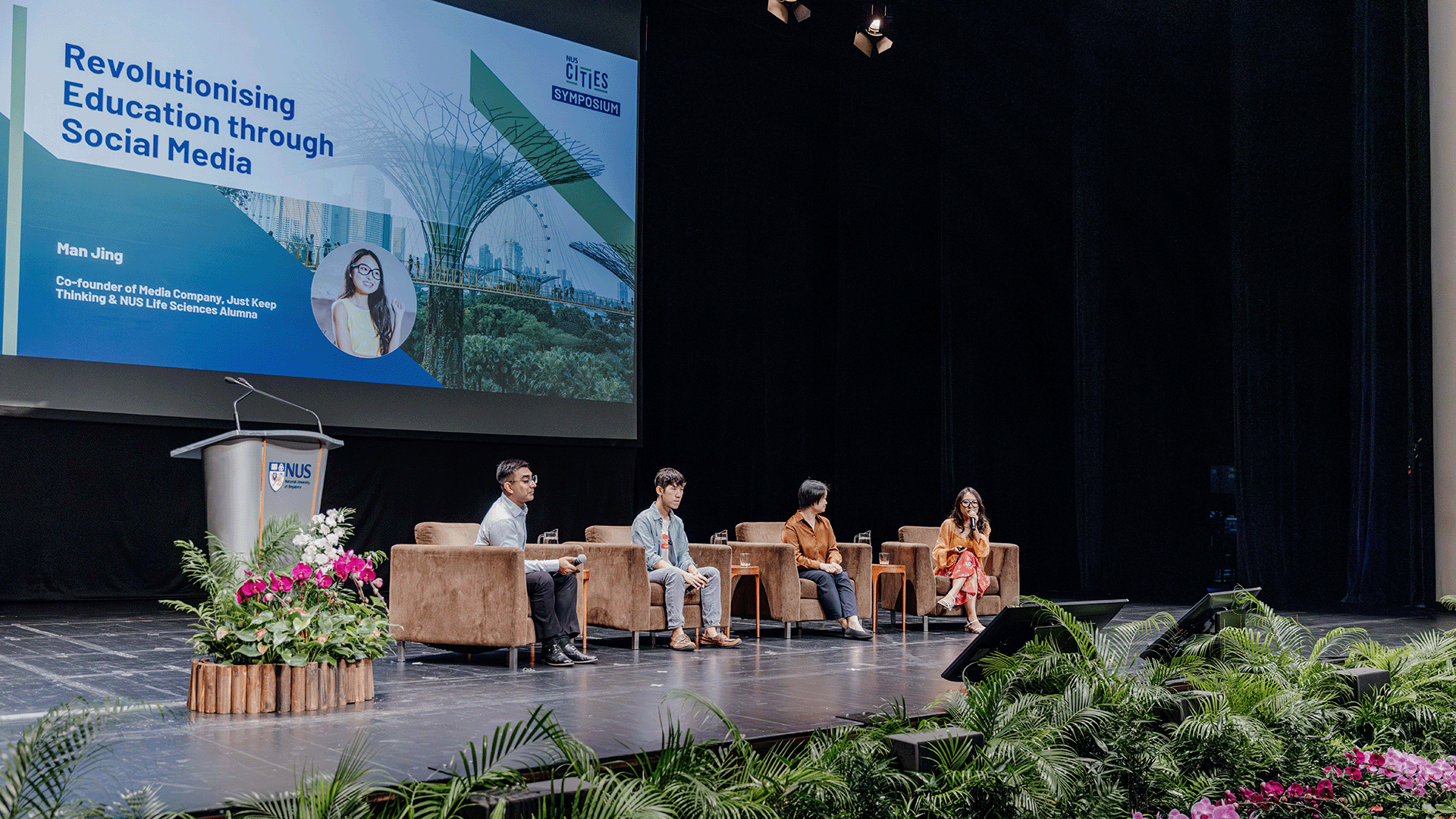
A final plenary session featured a Young Leaders Panel, where emerging leaders shared innovative approaches to shaping future cities, including the challenges of building public engagement, changing mindsets, and the need for adaptability. Among the panellists was social media entrepreneur Man Jing – popularly known as ‘Biogirl MJ’ from educational content creators Just Keep Thinking – who shared her insights on the role of science communication in promoting public understanding of sustainability.
Concluding the symposium, Professor Tony Wong from the Monash Sustainable Development Institute emphasised that building urban resilience requires strengthening social resilience, highlighting the interplay between infrastructure and institutions.
“In uncertain times, there are the unknown unknowns that you can never design any infrastructure for,” he said. “And when the unknown occurs, it is entirely reliant on the social resilience of communities to be able to overcome those events.”
The NUS Cities Symposium was held as part of the week-long NUS Sustainability CONNECT 2024 festival, showcasing sustainability efforts across the university in research and innovation, education, campus operations, and thought leadership.



